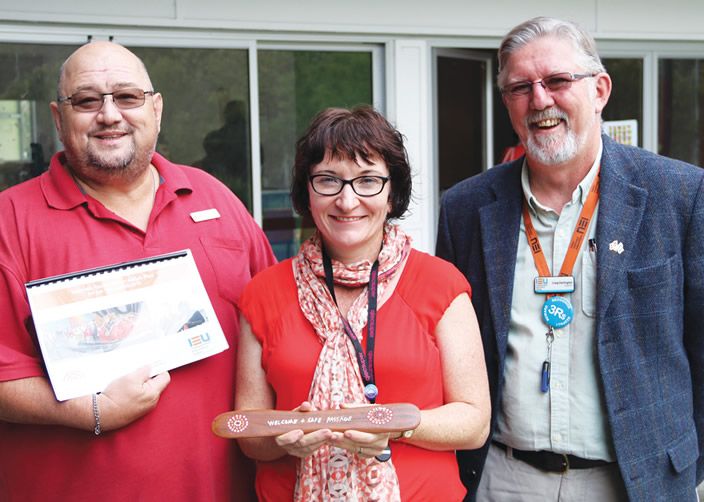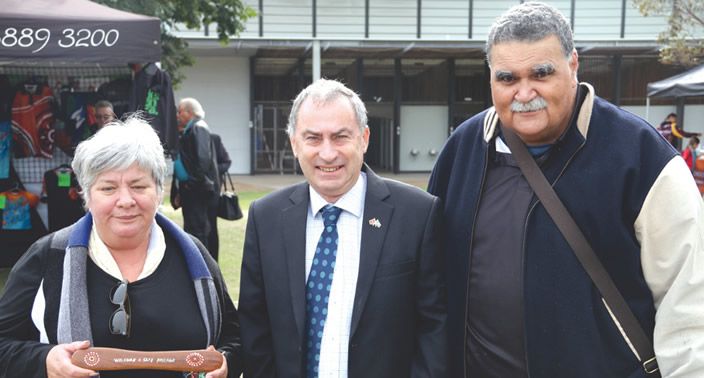
National Reconciliation Week celebrations this year marked two significant anniversaries in Australia’s reconciliation journey – 50 years since the 1967 referendum and 25 years since the historic Mabo decision. As we commemorate these milestones, it is appropriate that we also pause to consider issues of significance to our Aboriginal and Torres Strait Islander members and reflect on how our union might do more to promote reconciliation, IEUA-QNT Research Officer Adele Schmidt (pictured above with colleagues) writes.
As teachers and support workers in non government education institutions, our Aboriginal and Torres Strait Islander members are addressing the challenges on two fronts: as Aboriginal and Torres Strait Islander people, and as providers of education for future generations of Aboriginal and Torres Strait Islander students.
Poor progress
The latest Close the Gap report indicates that, on fundamental markers of quality of life, such as life expectancy, child mortality and employment, Aboriginal and Torres Strait Islander people continue to lag behind Australians from other cultural backgrounds.
This is, quite simply, unacceptable and it is for this reason that our Union strongly supports initiatives such as national Close the Gap Day held in March each year, which aims to raise awareness and lobby government to increase its support for healthcare initiatives for Aboriginal and Torres Strait Islander people.
Perhaps most troubling however, is that the Close the Gap report also indicates that access to early childhood education, attendance at school, and reading and numeracy skill levels for Aboriginal and Torres Strait Islander students also continue to lag behind non Indigenous students.
Successive governments have made numerous attempts to address educational disadvantage. Most recently, the Federal House of Representatives has been undertaking an extended Inquiry into Educational Opportunities for Aboriginal and Torres Strait Islander students, which commenced in 2015.
Both IEUA federal body and our Queensland and Northern Territory Branch have made submissions to this inquiry.
Based on input from Aboriginal and Torres Strait Islander members working with students in a variety of settings, ranging from specialist/community schools in urban areas, through to smaller Catholic and independent schools in rural and remote communities, our submissions raised two general points:
• A need to recognise the differing circumstances and needs of students in urban, regional and remote communities, and
• The importance of integrating education with broader support services for families and communities.
Members were particularly concerned that, while a child’s experience of education has a significant impact on the trajectory of their life, many Aboriginal and Torres Strait Islander students struggle to engage with learning in the first instance because they face ongoing challenges that have their genesis in unfair and inequitable policies and practices of colonisation.
We have known for many years that changing perceptions and experiences of education for these students requires a long term commitment, commencing with early childhood education programs that are respectful of the language and culture of the child and continuing through to constructive, collaborative relationships with family and community members and other support services.
Building relationships that improve outcomes for students takes time and persistence, because empowering community members and education professionals to work together and develop the highly situated, locally responsive solutions required for success needs long term, stable funding and resources.
Our full submission to the Senate Standing Committee’s Inquiry into Educational Opportunities for Aboriginal and Torres Strait Islander Students can be viewed at http://www.qieu.asn.au/.




































































































































